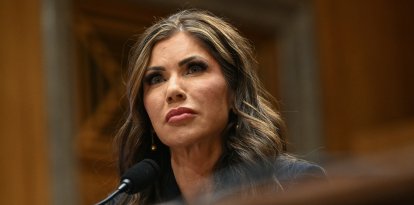Trump's Mega Bill would prohibit Medicaid from covering gender transition treatment
This provision by Rep. Dan Crenshaw (R-TX) entered at the last minute in the House-passed version.

Dan Crenshaw in Congress/ Chip Somodevilla.
The "One Big, Beautiful Bill," as it's called by Donald Trump, would prohibit Medicaid from covering gender transition treatments. This provision was added at the last minute in the House-passed version, which must now pass through the Senate, where it is expected to receive some modifications.
Congressman Dan Crenshaw (R-TX) was responsible for pushing this addition to the bill's text. Crenshaw had introduced separate legislation in January to prohibit the use of funds for such treatments on minors, although the one that is part of the president's megaley would apply to all ages.
"Gender transition procedures are the lobotomy of our generation. So-called ‘gender-affirming care’ isn’t healthcare — it’s fringe science with no proven benefit and massive risks," he said in a statement.
">Just a year ago, few believed we could put a stop to the radical gender ideology being pushed on kids—especially the kind masquerading as medicine, funded with your tax dollars. But now, we’re about to do exactly that.
— Dan Crenshaw (@DanCrenshawTX) May 21, 2025
The Crenshaw Amendment in President Trump’s One Big… pic.twitter.com/cRlvCfZeeW
According to the Texas Republican's own website, this provision would "prohibit Medicaid, CHIP, and Affordable Care Act funds from being used for ALL gender-transition procedures." Specifically, it would amend Section 1903 (i) of the Social Security Act, stopping federal payment for what the amendment classifies as "medically unnecessary" procedures.
At the same time, Crenshaw was particularly enthusiastic about another item in President Trump's big bill. It concerns the withdrawal of federal funding for Planned Parenthood.
"Nearly 50 years ago, the Hyde Amendment banned direct taxpayer funding of abortion. But Planned Parenthood still raked in hundreds of millions by claiming it was 'for other services.' Money is fungible. Every federal dollar they got freed up another to end unborn lives. This bill ends the game—no more loopholes, no more funding," the congressman posted on his X account.
As for the fate of the legislation, it is expected to receive some changes in the Senate, where some Republicans have already shown some discomfort with its fiscal impact.

























